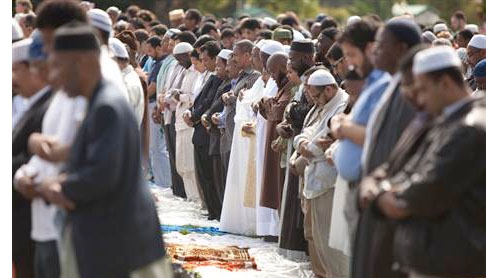
It is unfortunate that today when the religion of Islam is seen by the West as intolerant and violence-prone, most of us do not remember that all the great intellectual and cultural movements of the West, like the Renaissance, the Protestant Reformation, the
Enlightenment of the 18th century and the Romantic Movement of the 19th, could not have been possible without Europe’s contact with Islamic thought and culture and Islam’s impact on Europe through Spain, Southern France and Southern Italy. “Islam,” writes Stanwood Cobb, “impinging culturally upon adjacent Christian countries, was the virtual creator of the Renaissance in Europe.”
It was Islam, which had transformed mediaeval, Christian, intolerant Europe into a new and modern, rationalist, humanist, secular, tolerant and scientific Europe. Freedom of thought and expression were unknown in the mediaeval Europe dominated by the Catholic Church; scientific speculation was taboo. Renaissance had marked a new phase and a major departure in Europe’s intellectual and cultural history. The new thought and the new culture of the Renaissance, made possible by the impact of the Islamic civilisation on Europe, laid the foundation of the new and modern civilisation of the West.
The question arises how did the great change in Europe come about? The popular but unhistorical theory that with the capture of Constantinople by the Turks in 1453, Greek scholars came over to Italy and with them the era of light and learning started, is rejected by all honest scholars of the West. One such scholar, Douglas Bush, writes: “Most of us have encountered many times the idea that the fall of Constantinople in 1453 drove Greek scholars to Western Europe and so inaugurated the great revival of the Classics…This classic myth has so long been shattered that it might be allowed to rest in peace, or in the pages of popular writers, who so often cherish what scholars have abandoned.”
The period between the end of the 10th century and that of the 12th century was the period of the dominance of Arab thought and civilisation in Southern Europe. “The greatest achievements of antiquity were due to the Greek Western genius,” writes George Sarton, a distinguished historian, “the greatest achievements of the Middle Ages were due to the Muslim Eastern genius.” During this period (1100-1250) ‘the West was assimilating the East’. “It is then,” continues Sarton, “that the conflicting cultures were brought most closely together, especially the Christian and Muslim, and that their interpenetration constituted the solid core of the new Europe.”
The view of Sarton was supported by Condorcet, one of the most enlightened thinkers of the French Age of Reason and Enlightenment, who acknowledged Europe’s debt to the Muslim Arabs in these words: “They (Arabs) translated Aristotle and studies his works: they cultivated astronomy, optic, and the various branches of medicine and enriched these sciences with new truths. We owe to them the spread of the use of Algebra. With the Arabs the sciences were free, and this freedom was due to their success in reviving some sparks of the Greek genius… People learnt the Arabic language, they read Arab writings…”
The Western intellect’s spirit of inquiry, its observation and pondering over the phenomena of nature, and its discovery and exploration of new horizon of earth and heaven with a view to controlling forces of nature by obeying its laws is wholly in the Quranic spirit. The post-Renaissance Western civilisation is not a Christian civilisation. In its foundational ideal and values, such as the dignity of man, man’s rationality, unity and equality of mankind, humanism, liberalism, human freedom and human rights, science, technology and industrialism and, above all, the rule of law, and justice, it is closer to Islam’s moral, social and legal ideals than to mediaeval church Christianity.
Islam affirms freedom of religion, and the duty of justice to one and all without any racial or religious prejudices and hatred. The modern civilisation (or Western) is no longer merely Western. All nations, without distinction of race and religion, accept and enshrine in their constitution all the democratic, moral, social, economic and legal ideals of the contemporary civilisation as enshrined in the United Nations’ Charter and in the United Nations’ Universal Declaration of Human Rights.
All these are explicitly declared in the Holy Quran, and were proclaimed by the Holy Prophet Mohammad (peace be upon him) in his sayings and through his actions, especially in his farewell address at his last pilgrimage, an address which is the first charter of human rights, wherein he declared unity and racial equality of mankind; and also declared that he had trampled under his feet all primitive and barbarous and inhuman traditions and customs of the Age of Ignorance, such as tribal pride, prejudice and hatred, and female infanticide.











